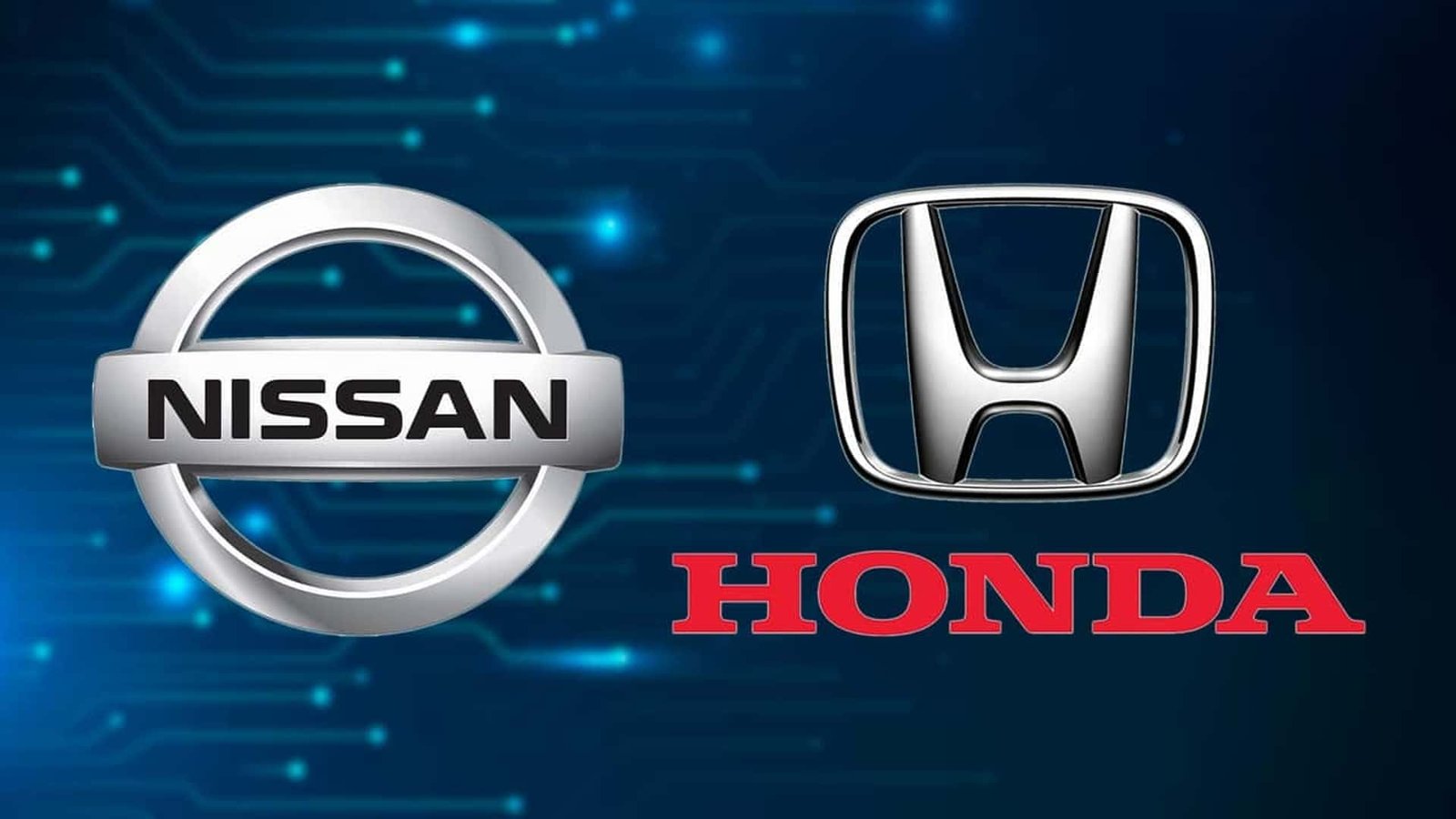Honda and Nissan Initiate Merger Talks to Form $52 Billion Automotive Giant
In a significant development within the automotive industry, Japanese automakers Honda Motor Co. and Nissan Motor Co. have initiated discussions regarding a potential merger. This strategic move aims to bolster their competitive position against global electric vehicle (EV) manufacturers, particularly Tesla and China’s BYD, amid the industry’s rapid shift towards electrification.
Background and Context
Honda and Nissan, once considered rivals in the automotive sector, have previously collaborated on various initiatives. In March 2024, they signed a memorandum of understanding to explore a strategic partnership focused on electric vehicles and artificial intelligence in automotive software platforms. This collaboration marked a significant step towards deeper ties between the two companies.
The automotive industry is undergoing a transformative shift, with traditional internal combustion engine vehicles giving way to electric and hybrid models. This transition is driven by increasing environmental regulations, consumer demand for sustainable transportation, and the rapid advancement of EV technology. In this evolving landscape, established automakers are seeking innovative strategies to maintain market relevance and financial stability.
Honda-Nissan Merger Is a Mega Auto Alliance on the Horizon?
— DriveGreenLiveGreen (@DriveGreen80167) December 18, 2024
Japanese automotive giants Honda and Nissan are reportedly considering a merger. According to Nikkei Asia, the two companies might soon operate under a single holding company model and are expected to sign a memorandum… pic.twitter.com/5EVhyJbWat
Details of the Merger Discussions
Reports indicate that Honda and Nissan are considering the formation of a holding company to oversee their combined operations. This entity would unite their resources, technologies, and manufacturing capabilities, creating a formidable presence in the global automotive market. The merger discussions are reportedly in the early stages, with both companies exploring various collaboration possibilities.
A potential merger would result in a company with an annual output of approximately 7.4 million vehicles, positioning it as the third-largest automaker globally, behind Toyota and Volkswagen. This consolidation could provide significant economies of scale, enhanced research and development capabilities, and a more robust platform for entering emerging markets.
Strategic Objectives
The primary motivations behind the proposed merger include:
- Enhanced EV Development: Combining resources could accelerate the development of electric and hybrid vehicles, enabling both companies to compete more effectively with established EV manufacturers like Tesla and emerging Chinese automakers.
- Cost Efficiency: The merger could lead to significant cost savings through shared manufacturing facilities, joint procurement of materials, and streamlined operations.
- Market Expansion: A unified entity could leverage combined brand strength to penetrate new markets, particularly in regions where either company has a limited presence.
Merger of two losers wouldn’t create a winner….🤔
— CondorHeroesReturns (@Condorretu58866) December 18, 2024
Honda and Nissan will begin negotiations for a potential merger to better compete with larger global EV makers, reports Nikkei. pic.twitter.com/iopPhf31Fk
Market Reaction
Following the announcement of the merger talks, Nissan’s stock experienced a substantial increase, reflecting investor optimism about the potential benefits of the merger. Conversely, Honda’s shares declined slightly, possibly due to concerns about the integration process and the strategic direction of the combined entity.
Challenges and Considerations
While the merger presents numerous opportunities, several challenges must be addressed:
- Cultural Integration: Honda and Nissan have distinct corporate cultures. Harmonizing these differences will be crucial for a successful merger.
- Regulatory Approval: The merger will require approval from regulatory bodies in various countries, which may scrutinize the deal for antitrust concerns and its impact on competition.
- Political Sensitivities: Given the strategic importance of the automotive industry to Japan’s economy, the merger may face political scrutiny, especially if it leads to significant job cuts or shifts in manufacturing bases.
Implications for the Automotive Industry
A merger between Honda and Nissan would signify a major shift in the automotive landscape, particularly in the context of the global transition to electric vehicles. It could prompt other automakers to consider similar consolidations to enhance competitiveness. Additionally, the merger could influence supply chains, technological development, and consumer choices in the automotive sector.
Conclusion
The ongoing discussions between Honda and Nissan regarding a potential merger underscore the dynamic nature of the automotive industry. As companies navigate the challenges and opportunities presented by the shift towards electric vehicles, strategic collaborations and consolidations are becoming increasingly prevalent. The outcome of these talks will have significant implications for the future of the automotive market, both in Japan and globally.
Honda and Nissan Initiate Merger Talks




